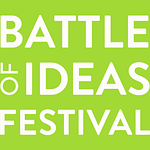Recorded on Sunday 21 October, 2012
For many years, the only hybrid human/animal embryos that could be legally created in the UK were those resulting from fertilising a hamster’s egg with a man’s sperm, as a means of testing male fertility. In 2008, it became legal to create all manner of hybrid human/animal embryos for research purposes, provided that such embryos were destroyed within two weeks of their creation. 2012 saw the establishment of a new £5.8million Centre for Mitochondrial Research at Newcastle University, to develop techniques for preventing the transmission of debilitating mitochondrial disease. But these techniques cannot be tested in clinical trials without a change in the law, and the government has commissioned a ‘public dialogue’ on the issue. Some object that mitochondrial-exchange techniques involve the creation of children with ‘three parents’, while others claim that this objection misunderstands the relevant science.
Those involved in such debates are familiar with the ‘yuck factor’ - the instinctive revulsion said to be felt by many, whenever the natural order of things is interfered with. The yuck factor is an obstacle often negotiated by appeal to scientific evidence, with tensions defused by incorporating ethics committees and ethical considerations into the practice and regulation of biomedicine. But while such procedures address the feelings prompted by scientific advances, they also result in substantive moral objections being either condescendingly dismissed as the irrational ‘yuck’ reaction, or subordinated to the scientistic framework of ‘evidence’. There seems to be scant room for more moral or political arguments, either in favour of, or in opposition to, biomedical progress.
This raises the question of how developments in biomedicine are understood and debated by the public, and whether the public has any meaningful input. By definition, there is no direct public input into scientific research (which is specialised work evaluated by means of peer review), but biomedical policy is supposedly developed under the auspices of the broader democratic process. Such policy affects not only the application of research once it has been conducted, but – if research techniques are contentious, for example if they involve the use of human embryos – whether the research is permitted to proceed at all, much less receive public funds. How are these decisions arrived at? What role do democracy, morality and a grasp of the actual science play in the process?
Speakers:
Professor David Jones director, Anscombe Bioethics Centre; co-editor, Chimera's Children: Ethical, Philosophical and Religious Perspectives on Human-Nonhuman Experimentation Professor Robin Lovell-Badge head, stem cell biology and developmental genetics, National Institute for Medical Research Ken MacLeod award-winning science fiction writer; author, Descent, The Restoration Game and Intrusion; writer-in-residence, MA Creative Writing, Edinburgh Napier University 2013-2014 Güneş Taylor researcher, University of Oxford; MSci, Human Genetics Chair: Sandy Starr communications officer, Progress Educational Trust; webmaster, BioNews














#BattleFest2012: Banning the Brave New World? The ethics of science